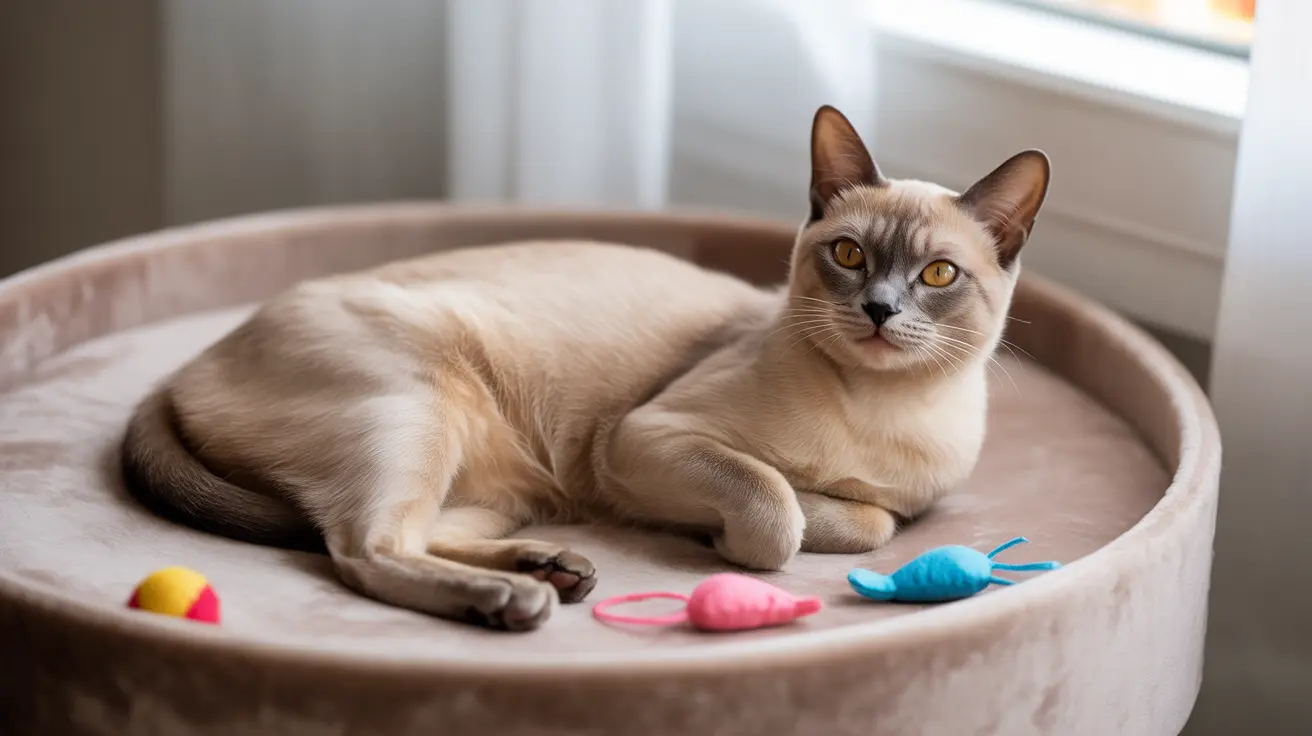Introduction
Considering adding a Burmese cat to your family? These elegant, affectionate felines are known for their striking appearance and dog-like loyalty, but understanding their associated costs is crucial for responsible pet ownership. From initial purchase prices to ongoing care expenses, this comprehensive guide will help you prepare for the financial commitment of welcoming a Burmese cat into your home.
Whether you're looking to adopt from a shelter or purchase from a breeder, we'll explore all the costs involved in Burmese cat ownership, including setup expenses, healthcare needs, and long-term maintenance requirements. Let's dive into everything you need to know about investing in these beloved companions.
Initial Purchase and Adoption Costs
The cost of acquiring a Burmese cat varies significantly depending on your chosen path. Breeder prices typically range from $600 to $1,500, with show-quality or rare-colored cats commanding prices up to $2,500 or more. These higher prices often include initial veterinary care, vaccinations, and health guarantees.
For those considering adoption, shelter fees usually fall between $50 and $300. This more affordable option typically includes spaying/neutering, initial vaccinations, and sometimes microchipping. While less common, free Burmese cats may occasionally become available through personal networks, though these situations rarely include health guarantees or documentation.
Essential Setup Expenses
Before bringing your Burmese cat home, you'll need to invest in essential supplies. Initial setup costs typically range from $200 to $400, covering:
- Litter box and scoop ($35)
- Food and water bowls ($10)
- Comfortable bed ($30)
- Cat carrier ($40)
- ID tag and collar ($15)
- Interactive toys ($30)
- Scratching post ($35)
Monthly Care Costs
Regular monthly expenses for a Burmese cat typically range from $50 to $200, including:
- Premium cat food ($20-$40)
- Cat litter ($15-$25)
- Routine veterinary care ($10-$60)
- Pet insurance premiums (optional, $20-$40)
- Toys and enrichment items ($10-$20)
Health Considerations and Veterinary Expenses
Burmese cats are generally healthy but can be prone to certain genetic conditions. Annual veterinary costs average $400 in the first year, with routine care in subsequent years typically ranging from $200 to $400. Regular health screenings are essential due to breed-specific concerns like diabetes mellitus and hypokalemia.
Pet insurance can help manage unexpected veterinary expenses, with monthly premiums varying based on coverage level and deductible choices. Many owners find this investment worthwhile, especially given the breed's predisposition to certain health conditions.
Long-Term Investment and Lifespan
With proper care, Burmese cats typically live 12-17 years, though some may reach 20 years. This long lifespan means considering the total lifetime cost of ownership, which can range from $15,000 to $25,000 or more. This includes routine care, premium nutrition, and potential medical expenses throughout their life.
Frequently Asked Questions
How much does it cost to buy or adopt a Burmese cat from breeders or shelters?
Breeder prices range from $600-$1,500, while shelter adoption fees typically run $50-$300. Show-quality cats may cost up to $2,500 or more.
What are the most common health problems in Burmese cats and how can I manage them?
Common health issues include diabetes mellitus, hypokalemia, and dental disease. Regular veterinary check-ups, proper nutrition, and genetic screening can help manage these conditions effectively.
How long do Burmese cats typically live and what affects their lifespan?
Burmese cats typically live 12-17 years, with some reaching 20 years. Lifespan is influenced by genetics, diet, exercise, and preventative healthcare.
What kind of diet and daily care do Burmese cats need to stay healthy?
They require high-quality protein-rich food, fresh water, regular grooming, and daily exercise. Both wet and dry food should be provided, with portion control to prevent obesity.
How can I choose a reputable Burmese cat breeder to avoid hereditary health issues?
Look for breeders who perform genetic testing, provide health guarantees, and maintain transparent breeding practices. Ask for references and documentation of health screenings.
Conclusion
While the initial cost of acquiring a Burmese cat may seem substantial, the true investment lies in providing quality care throughout their lifetime. By understanding and preparing for both immediate and long-term expenses, you can ensure your Burmese cat receives the care they need to thrive for years to come.






